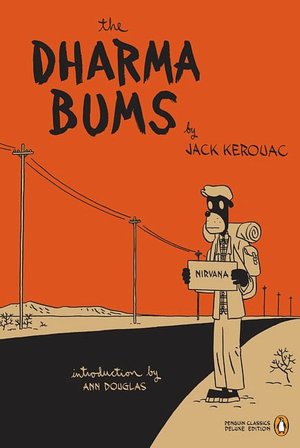I read as much for writing itself as for story. Not that that’s unusual, but I’ve come to realize that the writing makes all the difference. I am perfectly willing to read a story that is anywhere from unimpressive to downright unpleasant, in terms of plot---as long as the writing enthralls. It doesn’t have to be beautiful, necessarily, though that can help.
Proof that most readers can be bewitched this way: Lolita. That’s the novel that, for me, triggered this realization. You can describe it briefly as a book about an old geezer with pedophiliac tendencies, and thusly dismiss it---or you can say it’s about a man with yearnings toward his past, unfulfilled sexual desires, an undeniable draw toward the most innocent form of beauty he knows, and a girl too young to know what it means to even pretend to fulfill all that. You might also mention that, while reading---though you are aware of the boundaries and where they should not be crossed – you do not, and cannot, villainize him. And that is entirely the doing of Nabokov’s words.
Lolita is not a particularly recent read for me, but it has guided many of my subsequent choices in reading (and writing). Here are a few things I read this summer that, if not astounded me, at least tickled me: both as a human being with emotions to be strummed, and as a writer with tools to be sharpened.
The Unbearable Lightness of Being by Milan Kundera If you have ever traveled---especially often or long enough to feel out-of-place in any given place---this is something you should read. I can’t promise it will solve any of your existential crises on the road (play-on-words sort of intended---see third book down this list), but it will be a companion of sorts. That’s largely due to the delight of Kundera’s style: it is always accessible, inviting, and impossibly intimate.
He writes the novel in two ‘modes’: in one, he tells the story of Tomas, Teresa, Sabina, and Franz. In the other, he talks directly to us: about distance, love, desire, responsibility---even about the unique consciousness of animals. In these sections, I found myself stopping after almost every paragraph. Every musing made me want to tell someone in particular, or tell someone anonymous, or at least write it down to tell myself, again and again. Or to write it back to Kundera in a letter.
He also deals delicately (and accurately, it feels) with the subject of unbalanced relationships, or unequal loves. If you’ve ever experienced this, the novel will be at once heart-breaking and -healing.

Living by Fiction by Annie Dillard This one gets a little technical, but as an English and creative writing major, it was right up my alley. Even if you don’t think you’d like a book about the nitty-gritty of technique and form in writing, what fascinates is how Dillard gives fiction a tangible place in the real world. Too often fiction is dismissed as no more than escape or fancy or, at best, a noble yet disconnected and isolated art. It may be somewhat isolated, but Dillard not only places writers beside all other kinds of artists, but places all of those artists in a room with the rest of the world. She answers the questions that most professors, students, and critics alike only have vague answers to: questions about the whether fiction can interpret the world, and how it can allow you to better understand reality. If you write, her answers may make you feel, suddenly, that you have taken far too much responsibility on your shoulders---but shoulder it you should. Someone’s got to.

The Dharma Bums by Jack Kerouac There’s nothing like reading Kerouac to make your speech and writing both relax. That is, assuming you aren’t being too hard on yourself for not being able to achieve that casual tone while still spinning out spectacularly singular turns of phrase and cadence.
As much as I love the classic On the Road, what I love about The Dharma Bums is that it wasn’t On the Road. Kerouac, as Ray Smith, is at once more and less focused on himself, and at once more and less perfectly embodies the way he thinks it best to live. In Dharma Bums, he is very earnestly trying to live a simpler and more spiritual life, largely fired and inspired by his friend Japhy. The greatest part is that while he does a lot better than most of us could, he still screws up sometimes just like anyone would. It’s a hopeful and reassuring thing to see someone mess up and achieve, in equal measure and equal beauty.
At one point, Ray feels he has achieved some kind of enlightenment in the woods near his home. His first thought upon achieving enlightenment is to tell Japhy; he can’t wait to put it into words for someone who is something of a mentor to him. But when he tries, Japhy dismisses him promptly, saying that to appreciate such an experience is not to blab on about it. Ray is subdued, but it remains unclear who’s really closer to enlightenment.
Back to his style: its simplicity is deceptive. One the one hand, it’s reminiscent of those plain, easy pleasures that make you think you could live a far humbler life than you do. It reminds me of my dad talking about the brown bread, mustard, and sardine sandwiches of his youth: those three things were all he required to feel nourished.
Particularly in Dharma Bums, the great thing about Kerouac is that his easy style works to describe his vagabond’s meals of cans of beans just as well as it does to talk about becoming a Buddha, and other more complex matters of the soul.
Souls, sardines, Sabina. They’re all sort of related, and they’re all equally worth reading (and writing) about. It’s all the way you phrase it.


